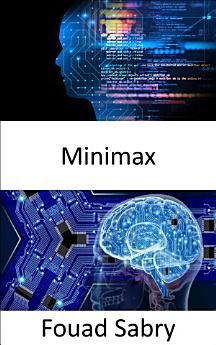Minimax: Fundamentals and Applications
এই ই-বুকের বিষয়ে
In artificial intelligence, decision theory, game theory, statistics, and philosophy, minmax is a decision rule that is used to minimize the probable loss for a worst case scenario. When discussing profits, one may often hear the term "maximin" used, which stands for "maximizing the minimum gain." It was initially developed for the theory of several-player zero-sum games, including both the circumstances in which players take alternate movements and those in which they make simultaneous actions. Since then, however, it has been expanded to more complicated games as well as to general decision-making in the presence of uncertainty.
How You Will Benefit
(I) Insights, and validations about the following topics:
Chapter 1: Minimax
Chapter 2: Game Theory
Chapter 3: Decision Trees
Chapter 4: Alpha-Beta Pruning
Chapter 5: Expectiminimax
Chapter 6: Adversarial Search
Chapter 7: Evaluation function
Chapter 8: Monte Carlo Tree Search
Chapter 9: Negamax
Chapter 10: Artificial Intelligence
(II) Answering the public top questions about minimax.
(III) Real world examples for the usage of minimax in many fields.
(IV) 17 appendices to explain, briefly, 266 emerging technologies in each industry to have 360-degree full understanding of minimax' technologies.
Who This Book Is For
Professionals, undergraduate and graduate students, enthusiasts, hobbyists, and those who want to go beyond basic knowledge or information for any kind of minimax.











